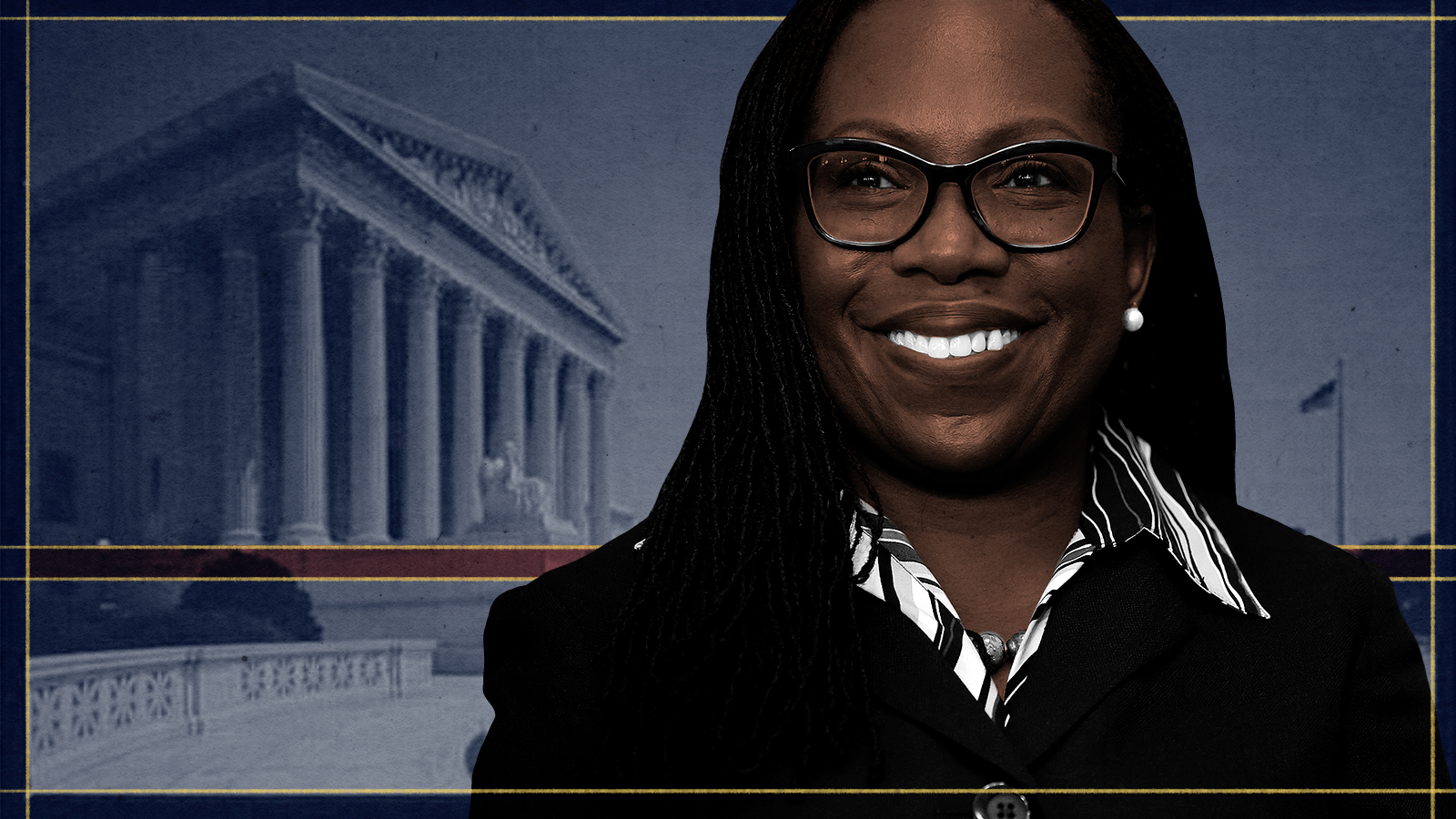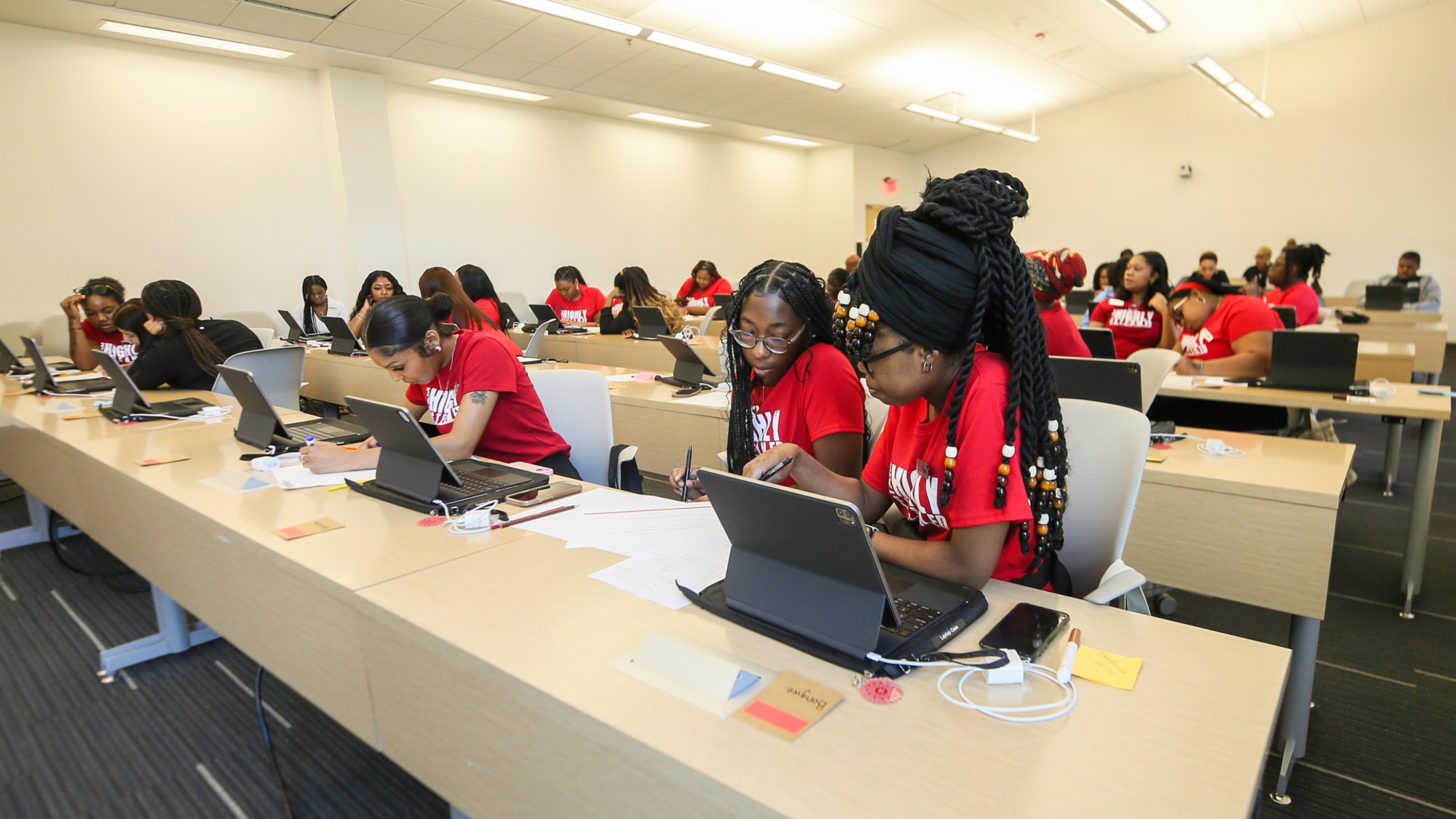Confirming Ketanji Brown Jackson to the Supreme Court is a start
But bigger changes are needed to fix SCOTUS


A free daily email with the biggest news stories of the day – and the best features from TheWeek.com
You are now subscribed
Your newsletter sign-up was successful
Today marks the beginning of Judge Ketanji Brown Jackson's confirmation hearing for her nomination to the Supreme Court. If confirmed, Jackson — an immensely qualified jurist with experience in both the private and public sectors, and on the federal bench — will be the first Black woman and former public defender to serve on the nation's highest court.
Jackson's historic confirmation hearing takes place at a critical time. In the past two decades, we have watched a conservative Supreme Court defy well-settled constitutional precedent, actively working to dismantle some of our most cherished rights and values. Jackson's confirmation will not change the balance of the court, but her confirmation hearing will provide senators with an opportunity to illuminate how the conservative supermajority has prevented attempts made by the federal government to check corporate abuse and rectify structural racism.
Today's supermajority conservative court has repeatedly overstepped its role as a neutral arbiter "calling balls and strikes" and has instead bent over backwards to protect corporate interests at the expense of the rest of us. Examples are rife — from Citizens United v. FEC, which has led to dark money dominating our political system, to Janus v. AFSCME, which has served a blow to public sector unions and collective bargaining efforts, to Michigan v. EPA, which has, in effect, placed industry profits on equal footing with protecting the environment.
The Week
Escape your echo chamber. Get the facts behind the news, plus analysis from multiple perspectives.

Sign up for The Week's Free Newsletters
From our morning news briefing to a weekly Good News Newsletter, get the best of The Week delivered directly to your inbox.
From our morning news briefing to a weekly Good News Newsletter, get the best of The Week delivered directly to your inbox.
These pro-corporate decisions were not made in a vacuum. Over the past two decades, the Roberts court has handed down a whole host of other decisions that have actively served to dismantle the legal architecture of racial and economic progress — by weakening the right to vote, stripping away worker protections, thwarting efforts to protect the environment, and restricting women's rights to bodily autonomy. Taken together, these decisions are a natural extension of the conservative movement's larger efforts to rig the economy for the few, at the expense of the many. In effect, the conservative majority has used the Supreme Court as a vehicle to carry out a broader, radical, far-right agenda.
There are a range of ways to prevent this conservative court from continuing to harm everyday Americans. President Biden has already made great advances by nominating and confirming new jurists with diverse backgrounds, unique perspectives, and demonstrated commitments to the principles of impartiality and equal justice, including the first Muslim American to serve as an Article III judge, the first openly gay woman to sit a on a federal appeals court, and dozens of women of color and a record number of public defenders to the federal bench.
There are also a range of possible reforms to consider, many of which have the potential to restore the public's faith in the judiciary by counteracting some of the harmful decisions handed down by the Supreme Court in recent decades. Changing the composition of the court, for example, could rebalance its makeup and help to distance it from its capture by special interests.
In the meantime, however, as Jackson's confirmation hearing gets underway, senators have an important opportunity to tell the story of how this conservative Supreme Court is preventing us from meeting our collective needs — at a time when state legislatures across the country are waging a war on the right to vote, the teaching of American history, women's autonomy, and LGBTQ youth. Our courts should be protecting us from these attacks, rather than contributing to them. They should be upholding equal justice under the law, and respecting constitutional precedent.
A free daily email with the biggest news stories of the day – and the best features from TheWeek.com
Senators have an important role to play in ensuring that those who serve on the Supreme Court are meaningfully committed to principles of justice, judicial independence, and civil rights and liberties. Jackson certainly meets these criteria, and her confirmation hearing will inevitably underscore the refreshing and crucial set of perspectives she will bring to the bench. But these hearings can — and should — also shine a spotlight on the harms the conservative supermajority has inflicted upon everyday Americans.
Shahrzad Shams is the program manager of the race and democracy program at the Roosevelt Institute. In addition to providing policy research and legal analysis of issues related to racial justice, democracy, the economy, and the courts, she works with the race and democracy team and Roosevelt fellows to ensure a critical racial analysis throughout the think tank's programmatic areas. Shams holds a BA in psychology from The Ohio State University, an MA in public policy, administration, and management from John Glenn College of Public Affairs, and a JD from Moritz College of Law.
-
 The world’s most romantic hotels
The world’s most romantic hotelsThe Week Recommends Treetop hideaways, secluded villas and a woodland cabin – perfect settings for Valentine’s Day
-
 Democrats push for ICE accountability
Democrats push for ICE accountabilityFeature U.S. citizens shot and violently detained by immigration agents testify at Capitol Hill hearing
-
 The price of sporting glory
The price of sporting gloryFeature The Milan-Cortina Winter Olympics kicked off this week. Will Italy regret playing host?
-
 ‘The West needs people’
‘The West needs people’Instant Opinion Opinion, comment and editorials of the day
-
 ‘The censorious effect is the same, even if deployed covertly’
‘The censorious effect is the same, even if deployed covertly’Instant Opinion Opinion, comment and editorials of the day
-
 Supreme Court upholds California gerrymander
Supreme Court upholds California gerrymanderSpeed Read The emergency docket order had no dissents from the court
-
 Vietnam’s ‘balancing act’ with the US, China and Europe
Vietnam’s ‘balancing act’ with the US, China and EuropeIn the Spotlight Despite decades of ‘steadily improving relations’, Hanoi is still ‘deeply suspicious’ of the US as it tries to ‘diversify’ its options
-
 ‘The sport is still run on a shoestring’
‘The sport is still run on a shoestring’Instant Opinion Opinion, comment and editorials of the day
-
 ‘We know how to make our educational system world-class again’
‘We know how to make our educational system world-class again’Instant Opinion Opinion, comment and editorials of the day
-
 Halligan quits US attorney role amid court pressure
Halligan quits US attorney role amid court pressureSpeed Read Halligan’s position had already been considered vacant by at least one judge
-
 ‘The science is clear’
‘The science is clear’Instant Opinion Opinion, comment and editorials of the day
